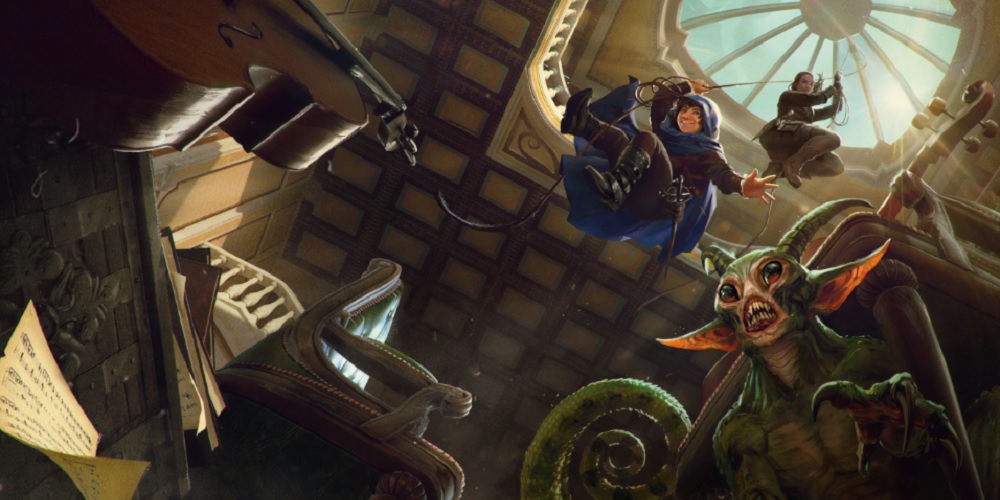Over on D&D Beyond you can read more about Keys from the Golden Vault, including information on 3 of the 13 adventures, the Golden Vault organization itself, and an overview of how the heist adentures within work.


 www.dndbeyond.com
www.dndbeyond.com
Four of the adventures include:
What Is Keys From the Golden Vault? 13 Heist-Centric Adventures
Gather your crew and get to planning—you're going on a heist! The latest book from D&D takes characters of all levels on epic heists. Learn more about t...
Four of the adventures include:
- The Stygian Gambit (for 2nd-level adventurers): Case a Nine Hells-themed casino and steal the prize for the Three-Dragon Ante tournament that's currently taking place.
- Prisoner 13 (for 4th-level adventurers): Infiltrate a remote prison in the tundra of Icewind Dale and extract information from an inmate.
- Vidorant’s Vault (for 7th-level adventurers): Break into the safe of a renowned thief, bypassing its many security features en route.
- Fire and Darkness (for 11th-level adventurers): Navigate the grim fortress of an efreeti and retrieve an artifact of unimaginable evil, the Book of Vile Darkness.



